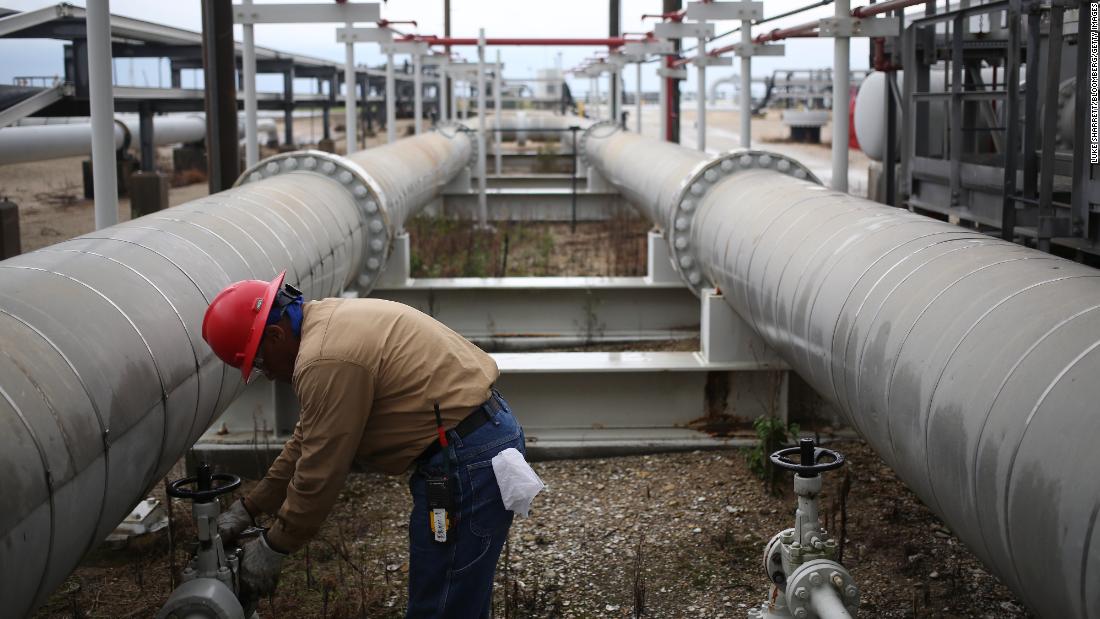How will the infrastructure law impact communities?
1:29
Editor's Note:
Mark Wolfe is an energy economist and executive director of the National Association of Energy Assistance Directors (NEADA), which represents the state directors of the Low Income Home Energy Assistance Program.
He specializes in energy and housing affordability and related financial matters.
The opinions expressed in this article belong solely to the author.
(CNN) -
Last month, several senators called on the Joe Biden administration to take steps to cut energy costs. Specifically, they urged the administration to increase the supply of natural gas and heating oil by limiting natural gas exports and freeing up stocks from the Strategic Petroleum Reserve (SPR).
Senators are right to ask.
As they note, the prospects for the upcoming heating season during the boreal winter are increasingly bleak for consumers.
Rapidly increasing demand for energy continues to outpace supply as the economy recovers from the pandemic, and prices for energy for home heating, as well as gasoline for transportation, are rising across the board.
Heat prices skyrocket and Biden can't do a thing about it
The US Energy Information Administration (EIA) has predicted that home heating costs for families using natural gas could increase by as much as 30% this winter compared to last winter, which represents an increase in costs from US $ 573 to US $ 746. For those who use heating oil this winter, costs could increase up to 43%, from US $ 1,210 to US $ 1,734. Gasoline prices have already risen to $ 3.41 a gallon, $ 1.31 more per gallon from last year. Bank of America recently predicted that the price of crude, which drives the price of gasoline, could rise another 45% by June next year.
Fortunately, as the senators point out, the government has the option of releasing oil from the SPR, the federal oil reserve that mitigates future supply disruptions.
This reserve was created in 1975 after the Arab oil embargo of 1973-74, which caused the average price of imported crude to triple.
The release of oil from the SPR could contribute to lower heating oil and gas prices.
And the suspension of natural gas exports could reduce pressure on natural gas prices in the United States.
While these efforts alone may not be enough to reduce prices significantly, taken together they will send a strong signal to markets that the administration is serious about high energy prices.
The president has lobbied OPEC and Russia to increase oil supplies beyond previously agreed targets, saying that the rise in gasoline prices was "a consequence" of Russia and the OPEC countries refusing. to pump more oil.
Your efforts have not paid off, but the pressure must not budge.
An increase in production would help to reduce the price of crude oil and, therefore, take pressure off the prices of gasoline and heating oil.
Nigeria is rich in oil but poor in energy.
Can't wait for more affordable batteries
Climate activists have criticized calls for increased production because they want to significantly reduce the use of fossil fuels. Reducing the country's dependence on fossil fuels is an important long-term goal, but no climate change policy in place today will help lower the cost next month for families who need to drive to work and keep their homes warm this winter. The short-term impact of rising prices falls most heavily on lower-income families, who are more likely to be front-line workers and have fewer options to save money on gas because they can't work from home.
In the long term, we need to increase the energy efficiency of the residential sector to reduce the demand for fossil fuels, especially for low-income families who struggle to pay their energy bills and cannot afford home energy efficiency improvements. For these families, Congress should increase funding from the Weatherization Assistance Program (WAP) to improve the energy efficiency of their homes. The U.S. Department of Energy estimates that for every dollar invested in WAP, the program generates $ 1.72 in energy-related benefits and $ 2.78 in other benefits, such as reduced costs of electricity. health care resulting from a more livable home.
If the government and Congress do not take immediate action to reduce winter heating costs, families already struggling will suffer even more, both at gas stations and at home, trying to keep warm this winter.
Natural gas Inflation

